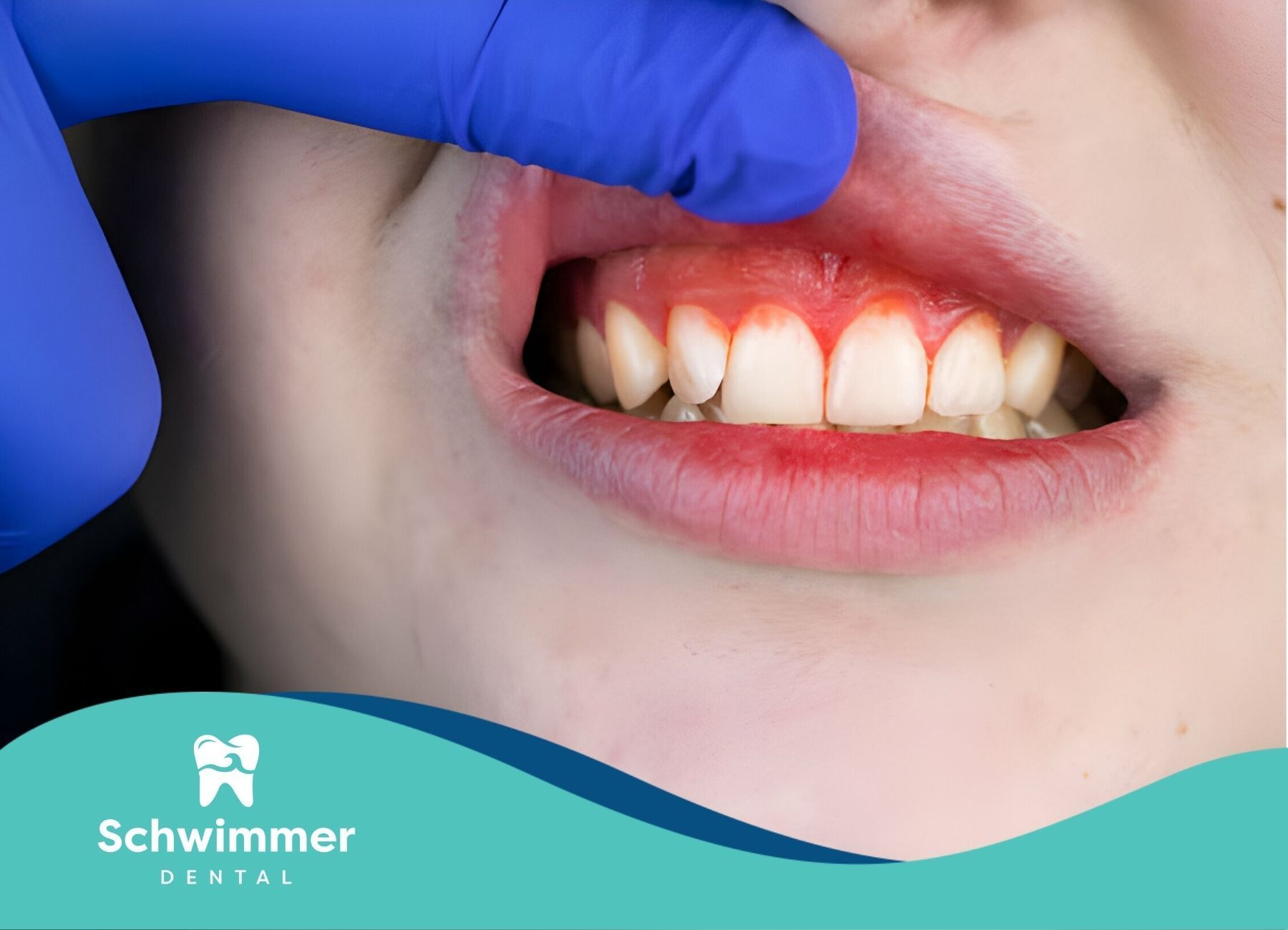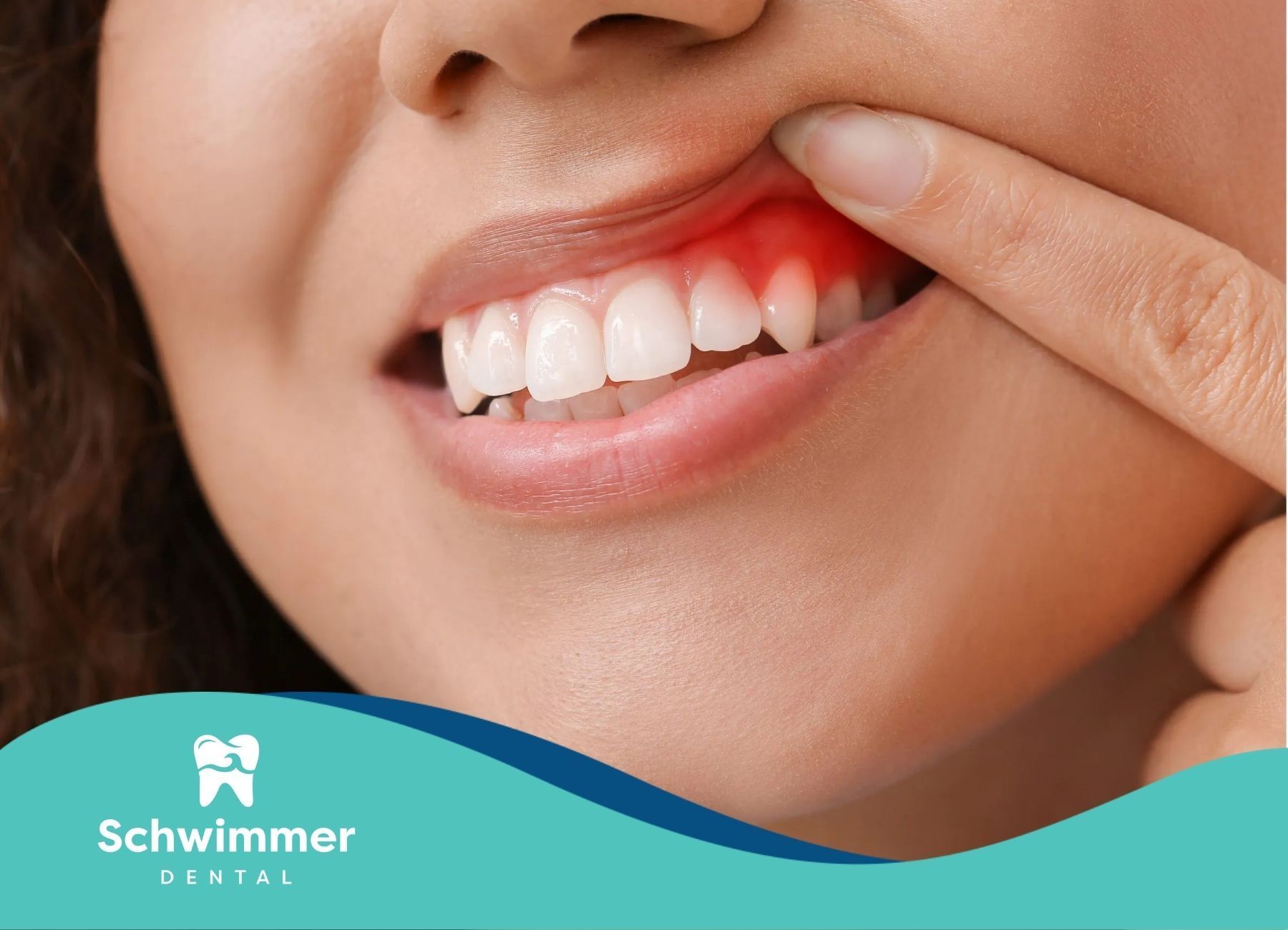Have an appointment? Complete the Intake Form
How Stress & Anxiety Impact Your Teeth
High stress levels have become increasingly prevalent in today's fast-paced world, impacting not only our mental well-being but also our physical health, including our oral health. While often overlooked, the link between stress and dental problems is significant. Prolonged stress can manifest in various ways, contributing to a range of oral health issues if left unaddressed.
Understanding the Link Between Stress and Oral Health
The relationship between our mind and body is intricate, and stress can manifest in surprising ways. When we experience stress, our bodies release hormones like cortisol, which, while designed to help us cope, can have unintended consequences when chronically elevated.
One area significantly affected is our oral health. Stress hormones can disrupt the balance within our mouths, reduce our body's ability to fight infections, and even lead to harmful habits that compromise our dental hygiene.
The direct impact of stress on oral hygiene
Stress can directly impact our oral hygiene in several ways. Firstly, it can reduce saliva production. Saliva is crucial in maintaining a healthy oral environment by neutralizing acids, washing away food particles, and inhibiting bacterial growth. When stressed, our bodies produce less saliva, creating a breeding ground for harmful bacteria and increasing the risk of cavities, tooth decay, and bad breath.
Secondly, stress can weaken our immune system. A weakened immune system makes us more susceptible to infections, including those affecting our mouths, such as gum disease. Our defenses against oral infections are lowered when our bodies constantly fight stress.
Lastly, during stressful times, our self-care routines, including oral hygiene, are often the first to be neglected. We might skip brushing or flossing, opting for quick fixes instead of mindful care. This poor oral hygiene and the physiological changes induced by stress create a perfect storm for dental problems.
How anxiety contributes to dental issues
Anxiety, a common stress response, can further exacerbate dental issues. One way anxiety manifests is through jaw clenching or teeth grinding, known as bruxism. This often unconscious habit can lead to jaw pain, headaches, and even damage to our teeth, causing them to chip, crack, or wear down.
Moreover, anxiety can worsen existing dental problems. The reduced saliva production associated with stress creates an environment where tooth decay can flourish. The acids produced by bacteria erode tooth enamel more readily in the absence of sufficient saliva, leading to cavities and increased tooth sensitivity.
Furthermore, anxiety can contribute to gum disease. The inflammation caused by the body's stress response can aggravate gum tissues, making them more susceptible to infection and the progression of gum disease from gingivitis to periodontitis.
Identifying Stress-Related Dental Problems
Recognizing the signs of stress-related dental problems is crucial for seeking timely intervention and preventing further damage. While some symptoms might be obvious, others can be subtle and easily overlooked.
Common indicators include increased tooth sensitivity, especially to temperature changes, jaw pain or soreness, especially in the morning, headaches, teeth grinding or clenching, often reported by a sleeping partner, and persistent dry mouth.
Bruxism: Teeth grinding as a stress response
Bruxism, the habitual grinding or clenching of teeth, is a common stress response, often occurring unconsciously during sleep. While the exact cause is unknown, stress is considered a significant contributing factor. When stressed, our jaw muscles tighten, and this tension can lead to involuntary grinding or clenching of our teeth.
The constant friction created by bruxism can wear down tooth enamel, making teeth more sensitive, prone to chips and cracks, and even loosening them over time. Besides the damage to teeth, bruxism can also lead to jaw pain, headaches, earaches, and temporomandibular joint disorder (TMJ), a condition affecting the jaw joint and surrounding muscles.
If you suspect you might be grinding your teeth, it's crucial to consult a dentist. They can assess the extent of the damage, recommend strategies for managing stress, and provide protective measures like a nightguard to prevent further wear and tear on your teeth.
Gum disease: The role of stress and anxiety
Gum disease, also known as periodontal disease, is an infection of the gums that can damage the soft tissues and bones supporting our teeth. While poor oral hygiene is a primary cause, stress and anxiety play a significant role in its development and progression.
Stress weakens the immune system, making us more susceptible to infections, including gum disease. Additionally, the inflammation triggered by the body's stress response can exacerbate gum tissues, making them red, swollen, and prone to bleeding. This inflammation creates a favorable environment for bacteria to thrive, further contributing to gum disease.
Over time, if left untreated, gum disease can advance from gingivitis, a milder form of the disease, to periodontitis, a more serious infection that can damage the bones supporting our teeth and eventually lead to tooth loss.
Preventive Measures for Stress-Induced Dental Issues
The good news is that many stress-induced dental problems can be prevented or mitigated with proactive measures. Addressing the root cause of stress through lifestyle changes plays a vital role, as does maintaining good oral hygiene practices.
By taking care of both our mental and dental health, we can minimize the impact of stress on our smiles.
Tips for maintaining oral hygiene under stress
Even when life throws curveballs our way, maintaining a consistent oral hygiene routine is essential, especially during stressful periods. Make a conscious effort to:
- Brush twice a day: Brush your teeth for two minutes, twice daily, using fluoride toothpaste.
- Floss daily: Flossing removes food particles and plaque from between teeth, where your toothbrush can't reach.
- Use mouthwash: An antimicrobial mouthwash can help reduce bacteria and freshen your breath.
- Stay hydrated: Drinking plenty of water throughout the day helps flush away food debris and keeps your mouth hydrated, counteracting the effects of stress on saliva production.
- Limit sugary drinks and snacks: Sugary treats feed the bacteria in your mouth, increasing your risk of cavities.
By sticking to these simple habits, you can help protect your oral health even during challenging times.
Stress management techniques to protect your teeth
Managing stress is crucial not only for our overall health but also for protecting our teeth and gums from the damaging effects of prolonged stress. Incorporating stress management techniques into our daily lives can make a significant difference:
- Meditation or deep breathing exercises: Dedicate a few minutes each day to quiet your mind, slow your breathing, and reduce stress hormones.
- Regular exercise: Physical activity releases endorphins, which have mood-boosting effects and help alleviate stress. Aim for at least 30 minutes of moderate-intensity exercise most days of the week.
- Adequate sleep: When we're sleep-deprived, our bodies produce more stress hormones. Aim for 7-9 hours of quality sleep each night.
- Healthy diet: Nourish your body with a balanced diet rich in fruits, vegetables, whole grains, and lean protein. Limit processed foods, sugary drinks, and caffeine, which can exacerbate stress.
- Engage in enjoyable activities: Make time for hobbies, connect with loved ones, or spend time in nature to unwind and de-stress.
Remember, taking care of your mental health is an investment in your overall well-being, including your oral health.
Conclusion
In conclusion, stress and anxiety can significantly impact your oral health, leading to issues like bruxism and gum disease. It's crucial to recognize these connections and take preventive measures to protect your teeth, such as practicing good oral hygiene and stress management techniques. By reducing stress levels, you can improve your overall oral health and well-being. Remember, taking care of your mental health is equally important for maintaining a healthy smile. If you are experiencing stress-related dental problems, consider seeking professional advice to address them effectively. Your smile deserves the best care!
At Schwimmer Dental, we understand that stress and anxiety can manifest in various ways, including oral health issues. Our experienced team in New Jersey can help you identify and address the connection between stress and dental problems such as teeth grinding, jaw clenching, and even canker sores. We offer a compassionate and supportive environment to help you manage stress and maintain optimal oral health.
Frequently Asked Questions
Can reducing stress improve my oral health?
Yes, reducing stress can significantly improve your oral health. By managing stress, you're less likely to experience bruxism, dry mouth, and gum inflammation, which can lead to decay and other issues. It's essential to combine stress reduction techniques with good oral hygiene and regular dentist visits for optimal results.
Need Assistance? We’re Here to Help
We are dedicated to enhancing your dental health and well-being.
We provide personalized dental care solutions for a confident, healthy smile.
Contact us today for Professional Dental Care.

Our caring staff will help you feel relaxed and comfortable in our state of the art office. We respect your time and pledge to deliver prompt service, backed by the latest knowledge, techniques, and technology.
Email: Office@schwimmerdental.com
Tel: (848) 294-2385
Fax: (732) 899-3347
Address: 1115 Arnold Ave,
Point Pleasant, NJ, 08742
Schwimmer Dental – Website by CWS


